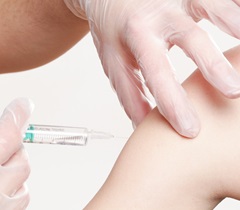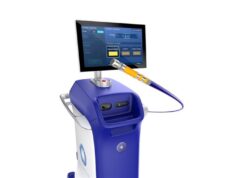 In patients with atrial fibrillation (AF) or atrial flutter, COVID-19 vaccination appears to be “generally not associated with an increased risk of thromboembolic events”, as per the findings of a recent study led by researchers in South Korea. In addition to their study’s main conclusion, the researchers note—writing in the European Heart Journal—that “careful individual risk assessment is required when advising vaccination for those not on oral anticoagulants, as these patients exhibited an increased risk of thromboembolic events post-vaccination”.
In patients with atrial fibrillation (AF) or atrial flutter, COVID-19 vaccination appears to be “generally not associated with an increased risk of thromboembolic events”, as per the findings of a recent study led by researchers in South Korea. In addition to their study’s main conclusion, the researchers note—writing in the European Heart Journal—that “careful individual risk assessment is required when advising vaccination for those not on oral anticoagulants, as these patients exhibited an increased risk of thromboembolic events post-vaccination”.
According to the researchers, while development of COVID-19 vaccines has been key to countering the pandemic caused by severe acute respiratory syndrome coronavirus 2 (SARS-CoV-2)—and despite the current endemic status of COVID-19—patients with comorbidities and older adults remain vulnerable to severe illness and death due to infection. As such, medical agencies and organisations worldwide recommend COVID-19 vaccination—especially for individuals with underlying disease.
However, several real-world studies have reported complications following COVID-19 vaccination, including thromboembolism, and patients with AF/atrial flutter are also predisposed to higher risks of thromboembolic events.
To evaluate the risks of thromboembolism following COVID-19 vaccination in patients with AF/atrial flutter, a collaborative team of researchers led by Jin Oh Na (Korea University College of Medicine, Seoul, South Korea) and Hyung-Kwan Kim (Seoul National University College of Medicine, Seoul, South Korea) conducted a self-controlled case series study.
“Recent studies in France and the UK have identified elevated risks of pulmonary embolism, acute myocardial infarction and thromboembolic events after COVID-19 vaccination,” said Na. “Our findings are crucial for the development of future COVID-19 vaccine policies and treatment guidelines.”
Initially, the team of researchers utilised data from the National Health Insurance Service database of South Korea to include 124,127 patients with AF/atrial flutter who received a COVID-19 vaccine between February 2021 and December 2021. Subsequently, they measured the incidence of thromboembolic events—such as ischaemic stroke and transient ischaemic attack—within the 21-day risk period post-vaccination.
Preliminary analysis revealed that there was no increase in the risk of thromboembolic events following COVID-19 vaccination, with an incidence rate ratio (IRR) of 0.93. To clarify whether the risks varied with respect to specific categories, the researchers conducted subgroup analyses. On this front, while the risks of thromboembolism did not vary with sex, age, or vaccine type, patients with AF/atrial flutter who did not receive anticoagulant therapy after vaccination had a significantly increased IRR of 1.88.
“This finding underscores the necessity of anticoagulant therapy in real-world clinical practice, particularly for patients with AF/atrial flutter following COVID-19 vaccination,” Na added.
As the risk period of the current study was only 21 days post-vaccination, Na and colleagues believe that future research involving longer timeframes and booster doses of vaccines is needed to comprehensively understand the long-term complications associated with COVID-19 vaccination.
“As the number of older adults in the high-risk category for cardiovascular disease rises, the need for COVID-19 vaccination in this demographic will also increase,” Na concluded. “The results of our study may therefore help in reducing severe adverse effects like thromboembolism in such patients.”









